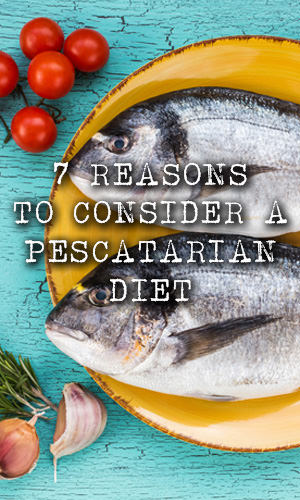
7 Reasons to Consider a Pescatarian Diet

Posted on 06 Dec, 2020
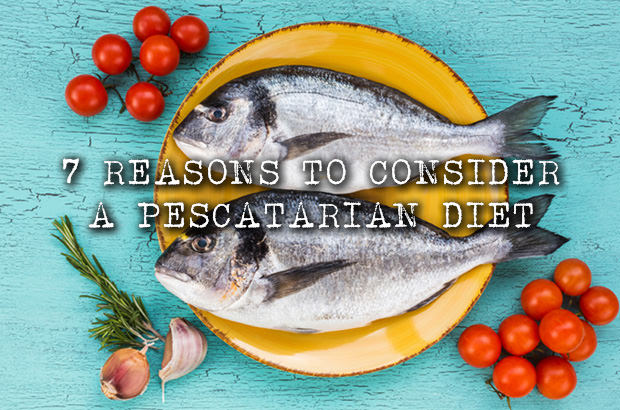
A pescatarian diet is a vegetarian diet with the inclusion of fish and seafood. Therefore, a pescatarian does not eat any flesh from any other animals outside of fish or seafood: no cows, lamb, pigs, turkeys, ducks or chickens.
We pescatarians get our protein from fish, eggs, dairy and plant-based sources like beans, nuts and seeds. A pescatarian diet can be similar to a Mediterranean diet or a Japanese diet (minus small amounts of meat), which are still touted as some of the healthiest ways to eat to reduce your chances of developing a lifestyle-related disease.
You get the known benefits of a vegetarian lifestyle with the proven health effects of omega-3 fatty acids from fish, making this diet a powerful link to long-term health. Here are seven reasons to consider a pescatarian diet:
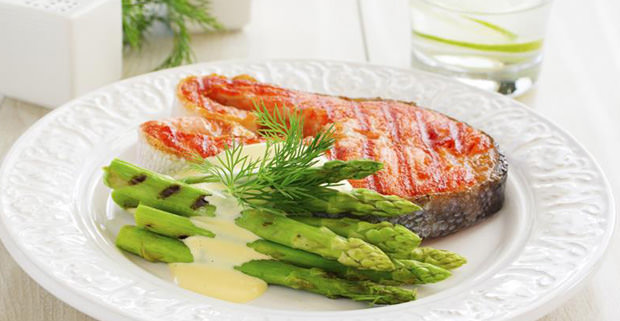 1. You'll be adding anti-inflammatory fats to your diet.
1. You'll be adding anti-inflammatory fats to your diet.
Anti-inflammatory omega-3 fatty acids are underrepresented in the average American diet of factory-farmed meat, wheat, sugar and refined vegetable oils. All of these foods in the Standard American Diet (SAD) cause inflammation in the body, and if consumed in large amounts over time can lead to heart disease and even autoimmune diseases.
Pescatarian foods, on the other hand, such as cod, salmon, pasture-raised eggs, walnuts and pumpkin seeds contain high amounts of omega-3s and can help lower inflammation in the body. Creating a diet with these foods at the center can lead to increased energy, health and even weight loss.
 2. You'll improve your blood lipid profile.
2. You'll improve your blood lipid profile.
Adding fatty fish to your diet even just twice a week can lower triglyceride levels, according to the American Heart Association. And a study done by the University of Eastern Finland found that increasing fatty fish intake to three or four meals per week increased HDL concentrations. HDL is the good cholesterol that helps protect against heart disease.
 3. You'll get your vitamins D and B-12.
3. You'll get your vitamins D and B-12.
On a strict vegan or vegetarian diet it can be tough to get vitamins D and B-12. Vitamin D is essential for teeth and bone health as well as for keeping your immune system in check. Vitamin B-12 is required for energy production.
Sardines, salmon, tuna and cod all rank higher than land animals as sources of vitamin B-12, and salmon ranks higher than cow milk as a good source of vitamin D.
 4. You'll eliminate antibiotics and growth hormones from your diet.
4. You'll eliminate antibiotics and growth hormones from your diet.
If you're sticking to wild-caught fish and seafood, then you've eliminated growth hormones and antibiotics that would have been ingested through eating factory-farmed animals. Antibiotics are grossly overused in factory farms to prevent illness in animals, not just to treat the sick ones. In fact, it is estimated by the NRDC that more than 29 million pounds of antibiotics are used in animal feed every year. Because of this overuse, antibiotic-resistant bacteria are promoted in the food supply and can ultimately cause resistant infections in humans, according to the Centers for Disease Control (CDC).
[Related: The 9 Safest Seafood Options]
 5. You'll be easier on the environment.
5. You'll be easier on the environment.
By decreasing our dependence on factory farms we can start to heal the environment. The amount of natural resources (such as water) spent on factory farms is enormous and pollutes local water sources from runoff. The clearing of rainforests to raise livestock is a detriment to the planet's ecosystem, and the greenhouse gases emitted from this type of farming is contributing to global warming, according to the Humane Society.
 6. You'll bring more mindfulness to your plate.
6. You'll bring more mindfulness to your plate.
Bringing a mindfulness practice to your plate can include thinking about where your food came from and how it got to your fork. Shockingly, 99 percent of meat on the market comes from factory-farmed animals that are subjected to horrendous conditions before they get to the slaughterhouse. Some of them are even diseased when they arrive but are sold as food anyway.
 7. A pescatarian diet is less expensive.
7. A pescatarian diet is less expensive.
Eating a mostly plant-based diet can be much easier on the wallet than omnivorous diets, especially the Paleo-type diets that focus on high-quality animal products. Sources of protein are usually your most expensive items at the grocery store, and high-quality fish and seafood can get pricey. But these foods don't need to be eaten on a regular basis. Eating fish just two to three times per week can be enough to give your body the benefits of a pescatarian diet. One small trick for saving money if you are on a tight budget is to buy canned wild salmon (and canned sardines, if you can stand them!) for a fraction of the price of their fresh or frozen counterparts.
2 Pescatarian Pitfalls to Avoid
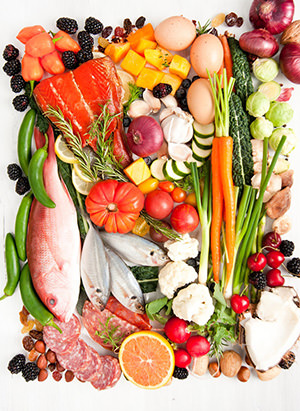 With any diet, there are pitfalls to look out for. As for the pescatarian diet, we do need to be careful of overfishing our oceans, so eating primarily vegetarian with occasional fish can help. Also, limit your fish consumption to three ounces per week of the following to avoid PCBs and heavy metal consumption: tuna, swordfish, shark and tilefish. Stick to smaller fish that are lower on the food chain like sardines, anchovies, cod, striped bass, snapper, trout and salmon.
With any diet, there are pitfalls to look out for. As for the pescatarian diet, we do need to be careful of overfishing our oceans, so eating primarily vegetarian with occasional fish can help. Also, limit your fish consumption to three ounces per week of the following to avoid PCBs and heavy metal consumption: tuna, swordfish, shark and tilefish. Stick to smaller fish that are lower on the food chain like sardines, anchovies, cod, striped bass, snapper, trout and salmon.- Don't be a "junk-food pescatarian." A diet of pizza and fish and chips is still pescatarian, but that doesn't mean it's healthy!
Jennifer Cassetta, M.S., CN, is a featured weight-loss expert on the ABC's My Diet Is Better Than Yours. As an author, speaker, third-degree black belt, clinical nutritionist and personal trainer, she brings 15 years of experience in keeping clients Strong, Safe & Sexy. She has created the Stilettos and Self Defense program and co-authored a book, Hear Me Roar. Jennifer empowers women to be strong, safe and sexy through self-confidence, self-defense and nutrition advice.
Great Books For Pescatarians

by Janis Jibrin

by Kathy Hunt

by Becky Selengut

by Mrs. Stephanie J Harris-Uyidi
 Farmed Salmon Is Healthier Than You Think
Farmed Salmon Is Healthier Than You Think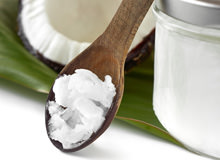 Scientifically Proven Benefits Of Coconut Oil
Scientifically Proven Benefits Of Coconut Oil Benefits of the Mediterranean Diet
Benefits of the Mediterranean Diet The 9 Safest Seafood Options
The 9 Safest Seafood Options










